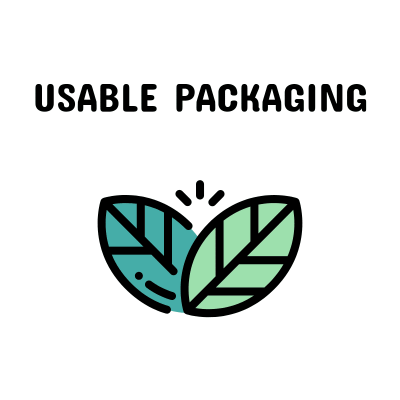
USABLE PACKAGING
Unlocking the potential of Sustainable BiodegradabLe Packaging

Unlocking the potential of Sustainable BiodegradabLe Packaging
Bioplastics currently hold only a two percent market share in the EU; the remainder is fossil based. In addition, many bioplastics are only partially biodegradable and can’t solve end-of-life issues. They also compete with feedstocks for the food and feed sectors, pushing up costs. The amount of non-biodegradable bio-based plastics on the market is expected to grow as replacements for fossil-based counterparts continue to grow.
This makes it important to increase the level of biodegradable bioplastics, ideally using different materials. However, many bioplastics lack adequate functional properties for packaging requirements. In addition, the complexity of multilayer packaging limits the bio-degradability and compostability of the whole packaging item.
To address this, the USABLE PACKAGING project will establish a new value chain for bioplastics. This will be based on low-cost and widely-available feedstock, such as by-products and sidestreams from the food processing industry. It will convert the feedstock into poly-hydroxy-alkanoates (PHA), which can be tuned to specific packaging needs and specifications. This will realise packaging items suitable for replacing fossil-based materials in high-performance packaging while retaining biodegradable characteristics.
As well as its overall objective of developing commercially-viable alternatives to petrochemical-based packaging materials, the USABLE PACKAGING project will:
The USABLE PACKAGING project seeks to deliver a number of specific impacts. It will: